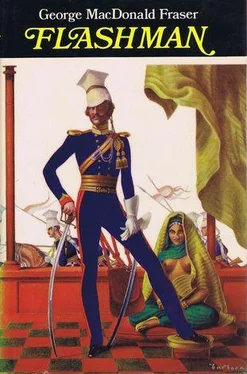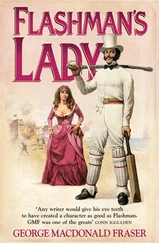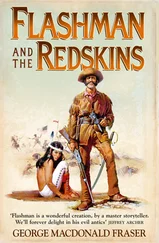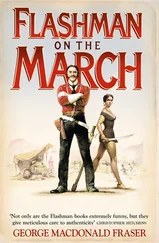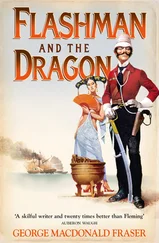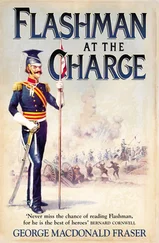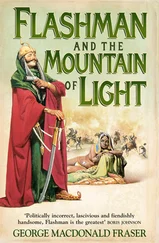Feringhee:European, possibly a corruption of "Frankish" or "English".
Ghazi:a fanatic havildar sergeant.
hubshi:negro (literally "woolly-head").
Huzoor:lord, master, in the sense of "sir" (Pushtu equivalent of "sahib").
Idderao:come here (imp.).
Jao:go, get away (imp.).
Jawan:soldier jezzail long rifle of the Afghans.
Juldi:quickly, hurry up.
Khabadar:be careful (imp.).
Maidan:plain, exercise ground.
Munshi:teacher, usually of language.
Puggaree:turban cloth.
Rissaldar:native officer commanding cavalry troop.
Sangar:small stone breastwork like grouse butt.
Shabash:bravo.
Sowar:trooper.
Lord Brougham’s speech in May, 1839, "lashed the Queen… with unsparing severity" (Greville) and caused great controversy.
Lady Flora Hastings, Maid of Honour to the Duchess of Kent, was believed to be pregnant, until medical examination proved that she was not. She won great popular sympathy, but the young Queen, who had been bitterly hostile towards her, suffered dramatically in public esteem.
Captain John Reynolds, a particular butt of Cardigan’s, was the centre of the notorious Black Bottle affair, in which his resignation was demanded because he was believed to have ordered a bottle of porter in the mess on guest night.
Cardigan had, in fact, served in India, when he went out to take command of the 11th at Cawnpore in 1837, but had spent only a few weeks with the regiment.
Cardigan was a favourite target of the newspapers, and especially of the Morning Chronicle (not the Post, as Flashman says). The quarrel referred to here is probably the one in which Cardigan, in response to a press attack, threatened to assault the editor. For details of this and other incidents, and of Lord Cardigan’s military career, sec Cecil Woodham-Smith’s The Reason Why.
Choice of weapons. In fact this did not necessarily rest with the injured party, but was normally settled by mutual agreement.
Mr Attwood, M.P. presented the Chartists' first petition for political reform to the Commons in July 1839. In that year there were outbreaks of Chartist violence; on November 24 people were killed at Newport.
Mr Abercrombie’s use of the word "chief is inexplicable, since Sir Colin Campbell’s command of the 93rd came much later. Of course, Abercrombie may have served with him in Spain.
Military service with the East India Company’s regiments was considered socially inferior to service in the army proper, and Flashman must have been conscious of this, which possibly accounts for his casual reference to it. The Company at this time drew its artillery, engineer, and infantry officers from the Addiscombe training establishment; cavalry officers, however, could be appointed direct by the Company’s Directors. Cardigan, who seems to have had a liking for Flashman (his judgement of men, when he condescended to use it, was deplorable) may well have had influence with the Board.
The Company did not believe in maintaining houses for transients and visitors; they were expected to find hospitality with British residents or pay their own lodgings.
Avitabile. Flashman’s description of this extraordinary soldier of fortune is accurate; the Italian was noted as a stern, just administrator and intrepid soldier.
Cotton was the ringleader of the great Rugby School mutiny of 1797, in which the door of the headmaster, Dr Ingles, was blown in with gunpowder.
Poor army swords. The sabres issued to British cavalry at this time were notorious for their greasy brass hilts, which turned in the hand.
Flashman’s account of Burnes’s murder clears up a point which has troubled historians. Previous versions suggest that the Burnes brothers left the Residency in disguise, accompanied by a mysterious third party who has been described as a Kashmiri Musselman. It has been alleged that this third man actually denounced them to the Ghazis. But Flashman could hardly have betrayed them without considerable risk to himself, so his account is probably the true one.
The actual names of these two Afghans remain a mystery. Other accounts call them Muhammed Sadeq and Surwar Khan, but Lady Sale seems to suggest that one of them was Sultan Jan.
Lieutenant-General Colin Mackenzie has left one of the most vivid accounts of the First Afghan War in Storms and Sunshine of a Soldier’s Life (1884).
Flashman, like many other European writers, uses the word "Ghazi" as though it referred to a tribe, although he certainly knew better. In Arabic "ghazi" is literally a conqueror, but may be accurately translated as hero or champion. Europeans usually render it as "fanatic", in which connection it is interesting to note the parallel between the Moslem Ghazis and the Christian medieval ideal of knighthood. The Ghazi sect were dedicated to the militant expansion of Islam.
Flashman’s account of the retreat tallies substantially with those of such contemporaries as Mackenzie, Lady Sale, and Lieutenant Eyre. This is also true of his version of affairs in Afghanistan generally. His description of McNaghten’s murder, for example, is the fullest and most personal to survive. There are omissions and discrepancies here and there - he does not mention "Gentleman Jim" Skinner’s part in the liaison work with Akbar Khan, for instance - but on the whole he can be regarded as highly reliable within his self-centred limits. Readers seeking wider and more authoritative accounts are recommended to the standard works, which include Kaye’s History of the War in Afghanistan, vol. ii, Fortuscue’s History of the British Army, vol, xii, and Patrick Macrory’s admirably clear account, Signal Catastrophe.
The "united front" of officers took place at Jugdulluk on January 11, 1842.
In fact some prisoners were taken by the Afghans at Gandamack, including Captain Souter of the 44th Regiment, one of two men who wrapped the battalion colours round their bodies (the other man was killed). The picture to which Flashman refers is by W. B. Wollen, R.A., hung at the Royal Academy in 1898.
Flashman may be excused an overstatement here. Possibly Sergeant Hudson was a fine swordsman, but this was not usual in the British cavalry; Fortescue in his passage on the Charge of the Heavy Brigade at Balaclava refers to the troopers' habit of using their sabres as bludgeons. It was not uncommon for a man to use his sabre-hilt as a knuckle-duster instead of cutting or thrusting.
Major Henry Havelock. Later famous as the hero of Lucknow, the "stern Cromwellian soldier" became one of the great figures of the Indian Empire.
Sale was indeed hailed as a celebrity, but returned to India and was killed at Mudki in 1845, fighting the Sikhs. Shelton’s adventurous career ended when he fell from his horse on parade at Dublin and was killed. Lawrence and Mackenzie both achieved general rank.
Читать дальше
Конец ознакомительного отрывка
Купить книгу
